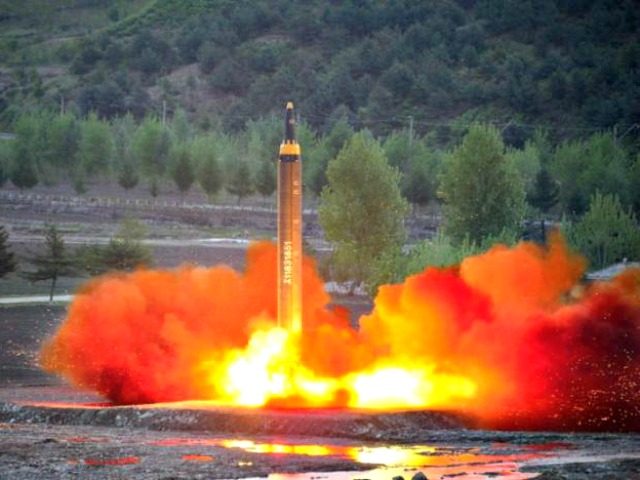Japan continues taking the North Korean threat very seriously, following up on the resumption of air raid drills for the first time since World War 2 with the relocation of Patriot missile batteries to the heart of Tokyo on Thursday.
The UK Daily Mail spotted pictures of a PAC-3 Patriot missile unit arriving at the Defense Ministry compound in Tokyo, accompanied by official assurances that the system can shoot down North Korean rockets.
The Japan Times reports that Patriot missiles are being placed along the west coast of the country to make good on Japan’s promise to intercept any missiles North Korea fires at Guam.
The Patriot deployment is expected to be completed by Saturday morning, although Defense Minister Itsunori Onodera said more PAC-3 batteries might be deployed if the situation warrants. One of the lingering questions is whether North Korea fires at Guam, or near it, as the current version of Pyongyang’s missile plan reportedly specifies.
The Japanese Defense Ministry is said to believe the situation will not escalate immediately if North Korea launches missiles, but they target the sea a safe distance from Guam. Of course, the accuracy of North Korean missiles would be a queasy variable in the defense equation.
Interestingly, Onodera implied Japan might try to intercept North Korean missiles even if they are not directly targeted at the island of Guam, as did Chief Cabinet Secretary Yoshihide Suga.
“We cannot tolerate such a clear provocative act to the security of the region and international society, including our country. We will maintain our monitoring and surveillance at a high level and take all possible means to cope with any situation,” Suga said during a Friday press conference.
Unfortunately, analysts pointed out to the UK Telegraph that neither Japan’s land-based Patriots or seaborne Aegis defense system is well-suited to destroying intercontinental ballistic missiles launched on high, arcing trajectories, as North Korea’s new generation of Hwasong-12 rockets probably would be. The Aegis destroyers might actually have a better shot than the Patriot missiles, but only by sailing dangerously close to North Korean waters.
Of course, if North Korea launches weapons at Japan, or an errant missile threatens to drop on Japanese territory, both of those systems will have roles to play. The Daily Mail notes that sales of bomb shelters and radiation-blocking air purifiers have been booming in Japan all summer.
U.S. and Japanese troops began a joint exercise on the Japanese island of Hokkaido on Thursday. The drill, named Northern Viper 17, involves about 500 U.S. Marines and 18 American aircraft. It is scheduled to last until August 28.

COMMENTS
Please let us know if you're having issues with commenting.